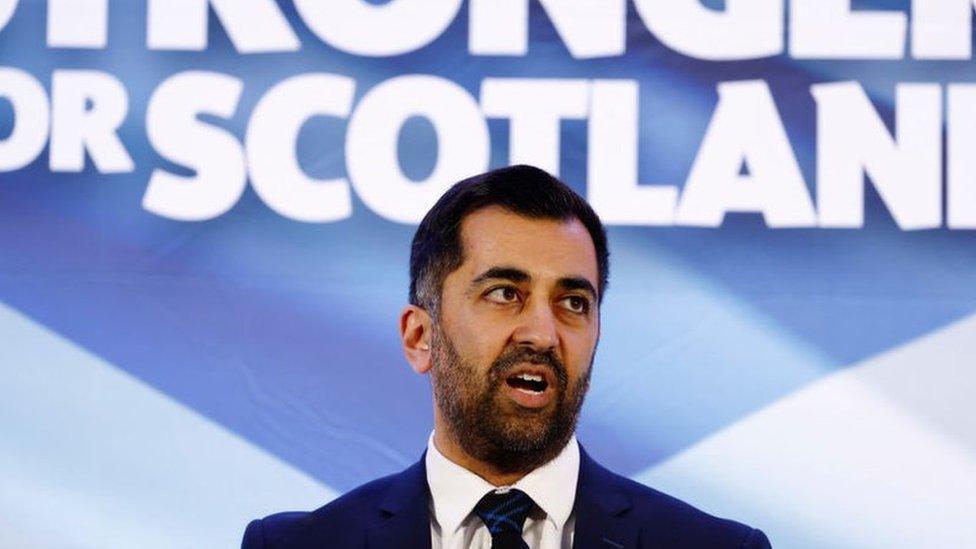De facto referendum is still an option, says indyref minister
- Published
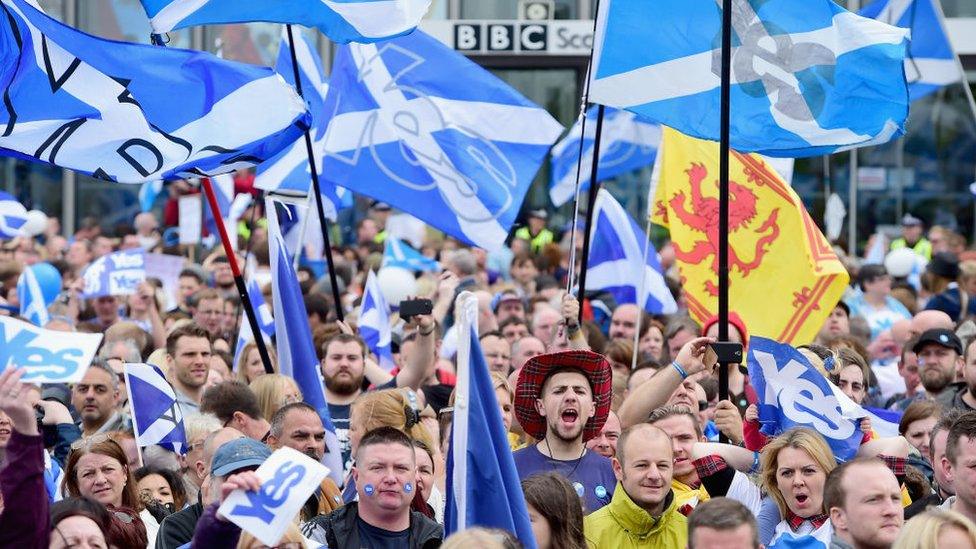
Scotland voted against independence by 55% to 45% in 2014
Using the next general election as a "de facto referendum" is still an option, the Scottish government's independence minister has said.
Jamie Hepburn said "no option should be taken off the table" ahead of a special SNP independence convention next month.
Mr Hepburn also revealed the Scottish government will resume publishing a series of papers which set out the case for a Yes vote.
Opposition parties have criticised the SNP's renewed focus on independence.
Labour's shadow Scottish secretary Ian Murray argued the cost of living crisis should be a bigger priority for SNP ministers.
Appearing on the BBC Scotland Sunday Show, Mr Hepburn said the SNP would use the independence convention event on 24 June to "discuss what our platform will be in advance of the 2024 general election".
Asked if the possibility of a de facto referendum approach was still on the table, he said: "The first minister has said that so long as it's rightly within the parameters of a legal, electoral route then no option should be taken off the table.
"So that will form part of our discussion."
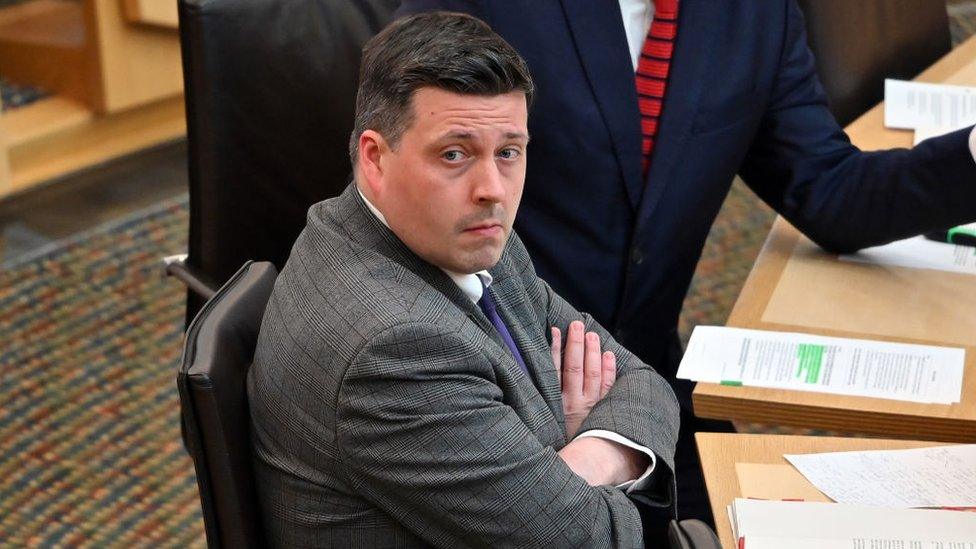
Jamie Hepburn said SNP members will discuss the party's independence strategy at a special conference next month
First Minister Humza Yousaf has said he wants a "consistent majority for independence" and will focus on making the case for a Yes vote because he knows pushing for a referendum immediately will be rejected.
But when Nicola Sturgeon was first minister she said she wanted to use the next UK general election - which must be held by January 2025 at the latest - as a de facto referendum.
This would involve treating the votes for the SNP at a general election as votes for independence and then looking to open negotiations with the UK government about Scotland's exit from the UK.
However, the UK government has previously dismissed the idea, which has also attracted some criticism within the SNP.
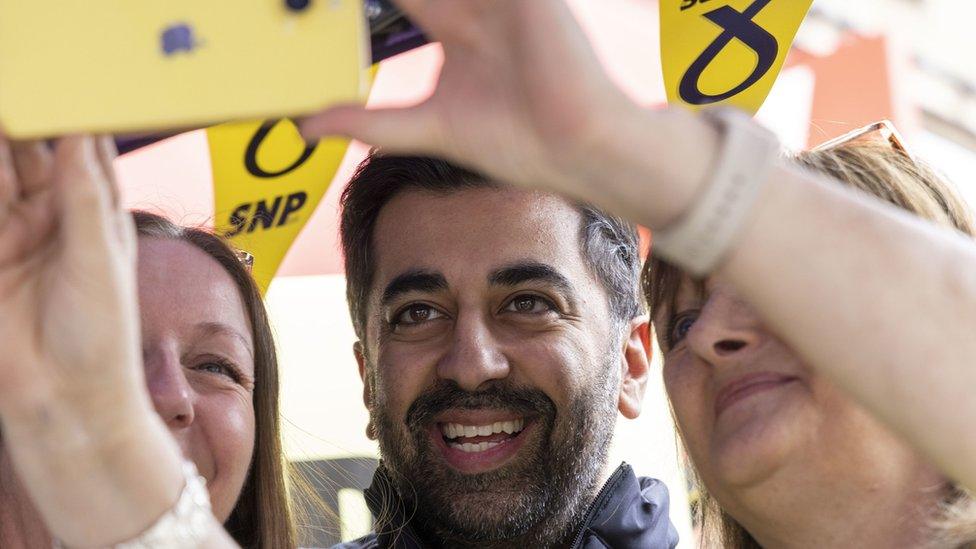
Humza Yousaf has pledged to take a positive independence message to people around the country
The convention in Dundee next month is likely to form part of more activity from the SNP on the issue of a second independence referendum.
Mr Hepburn told BBC Scotland that in the coming weeks another paper on the case for independence, produced by a team of Scottish government civil servants, will be published.
The first paper of this series - called Independence in the Modern World. Wealthier, Happier, Fairer: Why Not Scotland? - made comparisons between Scotland and other European countries and was published in June last year.
Subsequent papers were billed as looking at areas including currency, tax and spend, defence, social security and pensions, and EU membership and trade.
'Same old story'
Humza Yousaf has also pledged a "summer of independence campaign activity" which would "take our positive message to every corner of the country".
Writing in The National, he said the party was working hard to organise regional independence assemblies, something he pledged on the campaign trail for the SNP leadership.
Labour's shadow Scottish secretary Mr Murray said the Scottish government should be "concentrating on bread and butter issues".
He added: "It's the same old story, over and over again.
"The Scottish public will not be very amused that during the worst cost of living crisis in history the SNP are reverting to type and talking about independence.
"Why we have a very expensive £100,00-a-year minister for independence when we need everyone's focus on the cost of living crisis is completely beyond my comprehension."
Donald Cameron, Scottish Conservative constitution spokesman, added: "Jamie Hepburn couldn't have made it more obvious that the SNP have no intention of tackling Scotland's real priorities.
"They're having yet another conference, just for their members, on how to break up the UK - something Scots decisively rejected."


Mainstream supporters of independence face a big challenge.
They want Scottish independence to be achieved by a process which is beyond any legal or moral dispute and in clear accordance with international law.
Their ideal scenario is a second independence referendum on a straightforward yes-no question.
But the Supreme Court made it clear that Holyrood does not have the power to hold one without UK government permission.
There are a number of other options - none of them straightforward.
One argument is that a future election - perhaps the next general election or Scottish Parliament election- could be turned into a defacto referendum.
If more than 50% of people voted for the SNP or another pro-independence party, it would be considered by them to be a vote for independence itself. The hope of those who advance that argument would be that this would quickly result in an actual referendum on independence itself.
Another argument is that SNP MPs could try to "force" a future Westminster government which was short of a majority to concede a referendum in return for their support.
But both Labour and the Conservatives are adamant that will not happen.
Then there is the argument that the best way forward for supporters of independence is simply to keep on trying to increase support for it.
They would contend that, sooner or later, the point could come when it was clear that independence was consistently supported by a significant majority of Scots so it would be impossible in practice to deny a referendum.
These ideas, and other strategies, will no doubt be discussed at next month's convention.
- Published24 November 2022
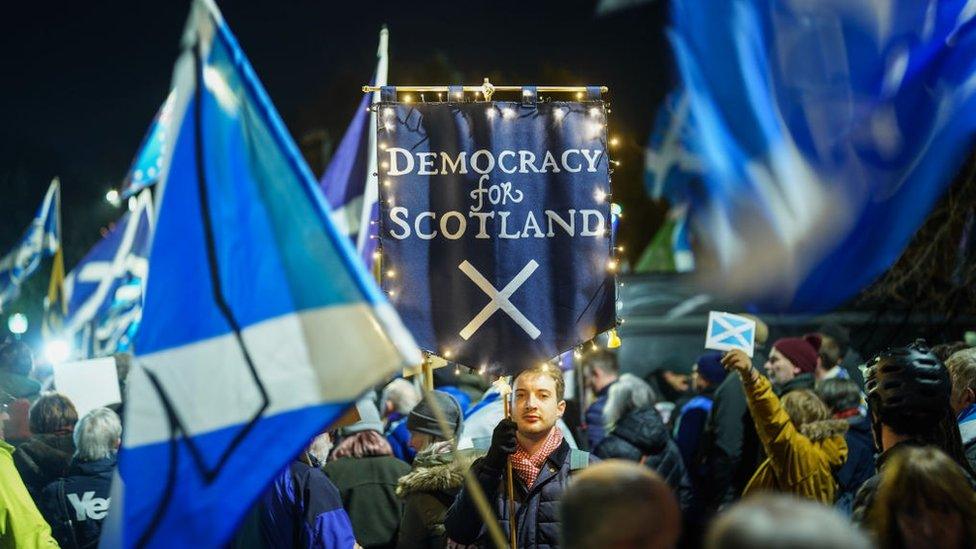
- Published14 June 2022

- Published29 April 2023
